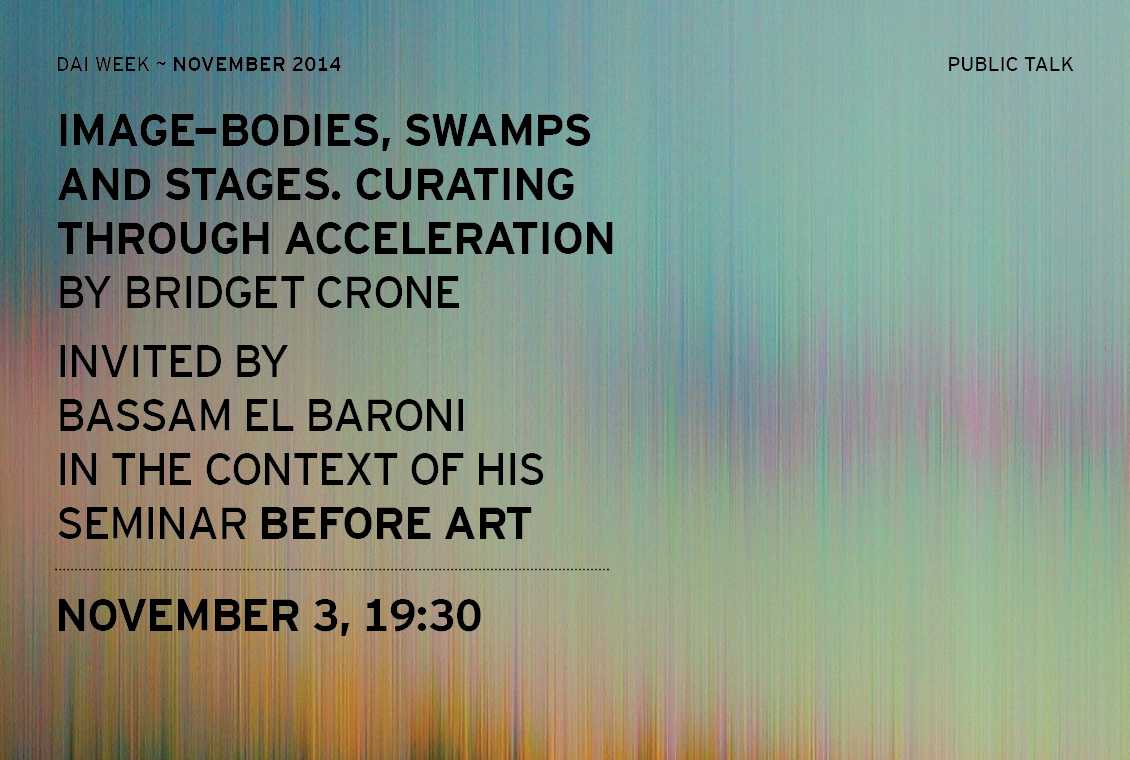2014 Monday November 3 , 2014 at 19.30 pm: Image-bodies, swamps and stages. Curating through acceleration ~ a public talk by Bridget Crone ~ invited by Bassam El Baroni in the context of his seminar Before Art. Location: DAI's auditorium, Kortestraat 27
In this talk, Bridget Crone will propose that we live in a world in which bodies have been accelerated into image – producing what she will refer to as image-bodies. This collapse, first announced by Henri Bergson in Matter and Memory (1896) and later revisited by Gilles Deleuze in his books on cinema (1983 & 1985), presents us with certain problems for thinking and working with images, particularly how we understand the distinction between 'real' and 'virtual' images. In other words, how do we distinguish between images that we see on screen and those we encounter in so-called 'real' life? In order to address these questions, Bridget will look at the work of Nick Land and the CCRU (Cybernetics Culture Research Unit) in the 1990s. Land contended that the (human) body was suspended somewhere between becoming a subject and being pure material (or meat), and that in this state the body was at its most productive and economically useful for capitalism. Bridget Crone wishes to explore this contention and will look at possibilities for rupturing and countering this dis-embodied state of suspension that Land proposes. She will suggest that it is art practices, especially performance and moving image practices, which are able to disrupt the continual movement of bodies and images within capitalism. It is because these art practices prioritise time over movement, and because they isolate a specific moment of encounter within the space of the stage (a space that is discontinuous with the flows of capital) that they are able to make this break. Crone wishes to discuss and explore the way in which a form of curating that focuses upon a disjunctive non-linear notion of time – the instant of encounter – enables a rupturing of the flows of capital while acknowledging the inevitability of these flows. She will address the work of a number of contemporary artists working in London and the UK at present, such as Gail Pickering and Heather Phillipson, as well as her own grappling with these ideas in her curatorial practice through projects such as The Sensible Stage.

